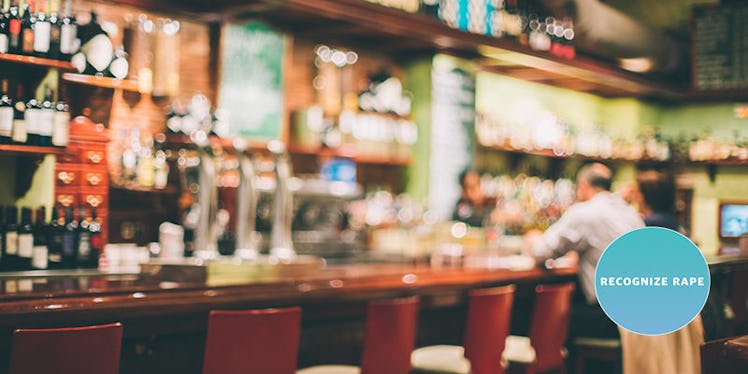
The Scary Reason So Many Rapists Aren't Getting Caught Drugging Their Victims
Two 21-year-old German women found Dennis Edison's listing on a couch-surfing website.
They decided to stay at his place in Long Beach, New York, when they visited in November 2015.
On the second night of their stay, Edison made the women cocktails. They both started feeling like "a robot" after drinking. Then, Edison gave one of the women a different drink, which made her feel disconnected from what was happening.
When she became unconscious, Edison raped her.
When she came back to consciousness, she and her friend went to a hospital and reported the rape. She was given forensic tests, which confirmed she had been raped.
But toxicology reports didn't necessarily confirm she was drugged.
Many drugs used to facilitate rape do not show up positive on toxicology reports.
Some drugs, like gamma-Hydroxybutyrate (GHB), go through a person's body so quickly, by the time he or she gets to medical services for testing, it's already gone.
Sexual predators can also use new drugs that laboratories do not know about or do not have tests to find. Testing labs "can't keep up," medical examiners have told Jane Manning, director of advocacy at the New York chapter of the National Organization for Women.
But many police departments and prosecutors are not aware of this, so they will call off investigations or say there is no evidence of an assault.
Manning told Elite Daily NOW-NYC, which works to educate law enforcement as part of its "Take Rape Seriously" campaign, is trying to spread that message. She said,
Don't look at the negative toxicology results as the end of your investigation. Look at it as the norm in drug rape cases, because it is the norm.
Drug-facilitated sexual assault is "even more gravely under-prosecuted than acquaintance rape, generally," Manning said.
Fallible toxicology reports are one factor leading to low prosecution rates of drug-facilitated sexual assault.
On top of that, many prosecutors and police departments do not know enough about the signs and symptoms of this specific type of rape.
But another major factor that contributes to low prosecution rates is a "perverse prejudice" law enforcement has against the survivors who report.
Drug-facilitated rape often happens when alcohol is present. A survivor may have had a couple drinks before being drugged.
This causes some members of law enforcement to not believe people who come forward. Manning said,
We're seeing police and prosecutors react with a mindset that says, 'You got yourself drunk, you got yourself raped, you shouldn't expect the criminal justice system to do something about that.'
That mindset is bizarre for two reasons. First of all, it's pretty normal for adults to drink. That's not an action that invalidates a person's rights.
Second of all, drug-facilitated sexual assault tends to happen when alcohol is present. Alcoholic drinks mask the drugs. So for police to say a person can't have been drugged because she was drunk is bad logic.
NOW-NYC's "Take Rape Seriously" is campaigning across states to re-educate law enforcement and help survivors.
Survivors of sexual assault can contact the organization for help. NOW learns about its cases and then can help advocate for them at police departments and district attorney (DA) offices.
In one city, the organization heard about a woman's "extremely strong case," but the DA would not take it on. NOW organized with nine women's and civil rights organizations and went to the DA's office.
(NOW-NYC did not disclose the specific details on these cases so as to retain privacy for survivors.)
They presented the case, along with other assault cases, to ask why the DA's office was not taking them on. The DA is now doing an investigation of its own bureau to figure out why these cases were not pursued.
NOW-NYC did similar work with a police department. The organization met with the captain of a department's Special Victims Unit (yes, like the TV show) to discuss its handling of sexual assault cases.
The captain told NOW her department is "changing the way we do business in this city" and reviewing how it handles cases, as well as giving training to officers to better interact with survivors coming forward with reports.
Manning said,
There is clearly a lot of room for us to make a difference here simply by spreading information and awareness.
Although toxicology reports may come back negative, there are experts who can help identify drugging.
NOW-NYC is trying to teach prosecutors and police departments these people, like drug recognition experts, exist.
These toxicologists can figure out drug use by learning about a victim's specific timeline when an attack occurred, including the symptoms the person experienced.
This is exactly what happened in the Long Beach case.
Elizabeth Spratt, director of toxicology at the Westchester County Department of Labs and Research, said at the trial the German woman's symptoms were signs of GHB.
Edison was found guilty of first-degree rape and first-degree sexual abuse this August.
He was sentenced to 10 years in prison and 20 years of post-release supervision.
Nassau County District Attorney Madeline Singas, who has a professional background in domestic violence and sexual abuse, said in a statement,
[The woman] bravely reported the incident and thanks to the outstanding work of the Long Beach Police Department and our prosecutors, this predator will be held accountable.
This is exactly the results NOW-NYC is working toward.
Some other young woman will be spared this ordeal because law enforcement did their job right.
The organization is continuing its work in advocacy and education.
Citations: Long Island Business News, Nassau County, NOW-NYC, SurviveRape.org, NCBI, Sexual Violence Justice Institute